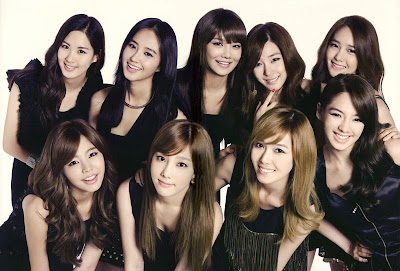People learn about other cultures through various type of medium such as movies, dramas, advertisements, music videos, magazines, and songs. Popular culture often is seen as populist, including forms of contemporary culture that are made popular by and for the people (Martin & Nakayama, 2012, p. 351). The most recent popular culture is the Korean Wave (Hallyu), a phenomena ignited by popular Korean dramas and songs. The Korean Wave (Hallyu) has demonstrated the profitability of South Korean popular culture (Martin & Nakayama, 2012, 368). There are three cultural stereotypes associated with the Korean Wave: tourism, advertisement, and cosmetic industry.
Korean Wave (Hallyu)
Korean idols or celebrities act as important figures in their country to promote Korea to the world. Most of them become popular after their songs or dramas are well-accepted by outsiders. One of the reasons why people want to visit Korea is because they want to see their idols by their own. I have a lot of friends whom went to Korea because of Korean dramas and idols. After becoming fan of a Korean band, my friend used her own money to attend a concert in Seoul, South Korea. The Korea Times reports that "according to the Ministry of Culture, Sports, and Tourism, the nation exported about $1.4 billion worth of entertainment products last year" (Martin & Nakayama, 2012, p. 368-369). Because of Korean dramas and idols too, many foreigners are interested to learn Korean language and to try Korean food. Most of the time, foreigners always associated Korea with popular dramas and idols because they indirectly gain a lot of information about Korean cultures through those dramas and idols.
One of popular groups in South Korea, Girl's Generation.
Gangnam Style phenomena. The singer, Psy has been invited to Ellen Show and to teach Ellen and Britney Spears how to dance.
Many big companies in Korea such as LG and Samsung use music videos and dramas to promote their latest products to customers. The most popular product being promoted through Korean dramas is cellphone. As an example, Samsung has sponsored a drama, the King 2 Hearts where all the actors and actresses in the drama use Samsung's latest invention, the Galaxy Note. People who are living outside of Korea know about Korean's technology through the drama and as a result, this kind of marketing helps to boost up the economy in the Korea. In addition, Korean dramas and music videos are actually influencing the viewers to buy products made in Korea.
One of the actresses is using the Galaxy Note in a popular drama, the King 2 Hearts.
Samsung's latest product, the Galaxy Note.
Korea and cosmetic is always together. Korea is also popular because of her huge cosmetic industry. Most Korean celebrities portrayed in the music videos and dramas are looking so flawless and perfect. Through dramas and movies, people come to know that Koreans are very obsessed with perfect and flawless skin. Many actors and actresses in Korean have undergone plastic surgery in order to look perfect in front of their fans. In fact, plastic surgery especially eyelids surgery, is very famous among Koreans. Celebrities have helped to drive the trend, as they scramble to keep ahead of digital technology that mercilessly exposes not only their physical imperfections, but any attempts to remedy them, said Rando Kim, a professor of consumer science at Seoul National University (Choe, 2011).
Some of popular cosmetic brands in Korea.
Nam Gyu Ri, one of popular actresses in Korea confessed that she did plastic surgery to look likes a Barbie doll.
Men in Korea also take care of their skin to achieve perfect looking.
These three cultural stereotypes: tourism, advertisements, and cosmetic industry always become the main topics when people are talking about Korean wave. In any case, the international circulation of Korean popular culture has important implications for the production of Asian standards of beauty and relationships, as well as international trade (Martin & Nakayama, 2012, p. 369).
References
Choe, S. H. (2011, November 3). In South Korea, plastic surgery comes out of the closet. The New York Times. Retrieved from http://www.nytimes.com/2011/11/04/world/asia/in-south-korea-plastic-surgery-comes-out-of-the-closet.html?pagewanted=all&_r=0
Martin, J.N., & Nakayama, T. K. (2012). Intercultural communication in contexts (6th ed.). Boston, MA: McGraw Hill.







No comments:
Post a Comment